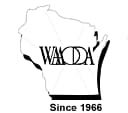Strategies for Effective Clinical Supervision:
Understanding and Managing Supervisee Resistance and Anxiety
 Inter Clinical Supervision (PDF 306 KB) Inter Clinical Supervision (PDF 306 KB)
 Advanced Clinical Supervision (PDF 104 KB) Advanced Clinical Supervision (PDF 104 KB)
 Advanced Clinical Supervision Registration Form (PDF 92.7 KB) Advanced Clinical Supervision Registration Form (PDF 92.7 KB)
|
|
WAAODAs intermediate-level Clinical Supervision workshop during November 9 and 10, 2006, provides
12 hours training contributing to the 30 total hours required clinical supervision education for the
International Certification and Reciprocity Consortium (ICRC). This will be the last WAAODA Clinical
Supervision training in 2006 to prepare for the December 8, 2006 ICRC examination.
|
| Schedule: |
| Thursday, November 9, 2006: |
| 8:00 a.m. ? 9:00 a.m. |
Registration and Continental Breakfast |
| 9:00 a.m. ? 9:10 a.m. |
Welcome and Housekeeping by Larry Lenz, MS, MBA, Director of Operations,Aurora Psychiatric Hospital and WAAODA Board Member |
| 9:10 a.m. ? 9:20 a.m. |
John Culbreth, PhD, Clinical Supervision Trainer, with introductions by Larry Lenz |
| 9:20 a.m. ? 12:00 p.m. |
Application of Counselor Development Models to the Supervisory Relationship The Use of Metaphor in Supervision |
| 12:00 p.m. ? 1:30 p.m. |
Lunch |
| 1:30 p.m. ? 5:00 p.m. |
Assessment and Evaluation of Supervisees
Supervision Contracts and Professional Disclosure
|
|
| Friday, November 10, 2006: |
| 9:00 a.m. ? 12:00 p.m. |
Managing Supervisee Anxiety and Resistance
Parallel Process |
| 12:00 p.m. ? 1:30 p.m. |
Lunch |
| 1:30 p.m. ? 4:30 p.m. |
Ethical and Legal Aspects of Clinical Supervision
Wrap-up and Evaluations |
|
| Goal: |
| This two-day intermediate-level, in-depth training provides 12 contact hours of didactic and experiential work specific to the field of clinical supervision of alcohol and other drug abuse counseling. Participants learn how to apply supervision theory and concepts to the practice of supervision. This workshop includes knowledge and theory specific to the supervision discipline, along with focused discussions, case scenario processing, and experiential exercises. All information is presented within the context of the most current research and literature in the field of clinical supervision. |
| Learning Objectives: |
- Understand how counselor development theory can be used in developing effective supervisory interventions;
- Understand how various types of metaphor development can be used effectively in the supervisory relationship;
- Understand the assessment and evaluation process for supervisees;
- Expand their knowledge and skills in developing appropriate supervisory contracts;
- Be conscious of supervisee resistance and anxiety, the impact it has on supervisees and supervisors, and effectivestrategies for managing it in supervision; and
- Recognize the legal and ethical aspects of conducting clinical supervision, the role of the supervisor, and the
supervisory-supervisee relationship.
|
| About the Trainer: |
|
John Culbreth, PhD, is a leading national trainer in the field of clinical supervsion, who received superior evaluations for
his workshops at the WAAODA Conference earlier this year. Dr. Culbreth is an assistant professor and coordinator of
the community counseling program in the Department of Counseling at the University of North Carolina at Charlotte. He
received his doctorate in Counseling and Counselor Education from the University of North Carolina at Greensboro in
1996 and has held teaching positions at Pennsylvania State University and the University of Virginia. As a faculty member and researcher, Dr. Culbreth has specialized in issues of clinical supervision that are unique to the chemical dependency
counseling field and the development process for new and experienced clinical supervisors.
Dr. Culbreths clinical experience includes work in treatment settings as a mental health counselor, chemical dependency treatment counselor, substance abuse prevention counselor, and in the school setting as a student assistance program
coordinator and intervention counselor. He holds licenses as a professional counselor and as a chemical addiction specialist
in North Carolina and is a Nationally Certified Counselor with Addiction Counselor and Clinical Supervisor pecialty
certifications.
|
 |
<-- Download the PDF viewer |
